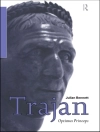The transnational migrations of the early twentieth century had a profound impact on the lives of many people, but none more so than those who were left behind. In this lively interdisciplinary study, Linda Reeder examines the lives of rural Sicilian women and the changes that took place as a result of male migration to the United States.
Tracing the changing notions of female and male in rural Sicily, Reeder uses a wide variety of primary sources, including birth and death records, government records, novels, and newspapers, to explore the impact of industrialization on motherhood, family, wage-work, and female civic identity, and show how the processes of migration, globalization, and nation formation are deeply gendered. Grounded in empirical evidence, Reeder uses the methods and theories of social history, women”s history, anthropology, and cultural studies in order to understand how migration altered women”s identities. The choices these women made regarding family, work, schooling, and material wealth redefined the boundaries of community and nation, and helped them to claim a central place in the rapidly expanding global market.












